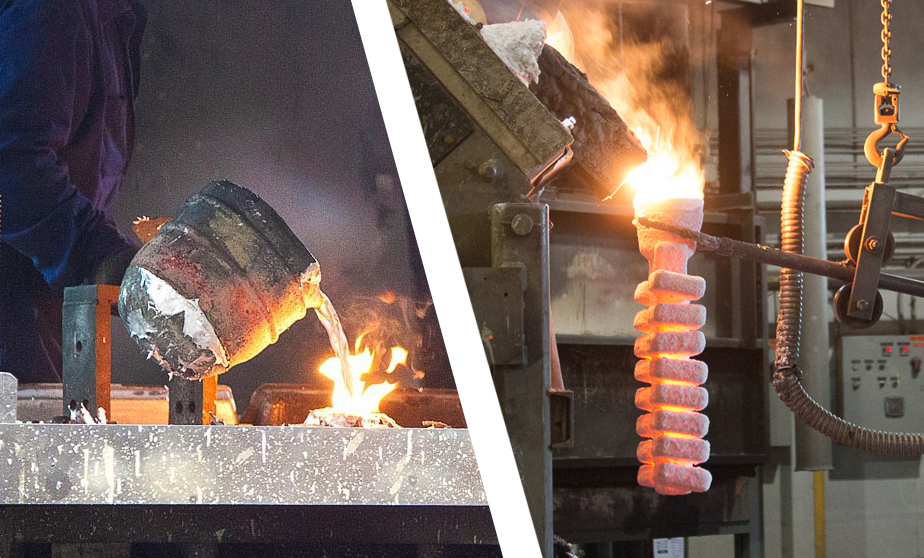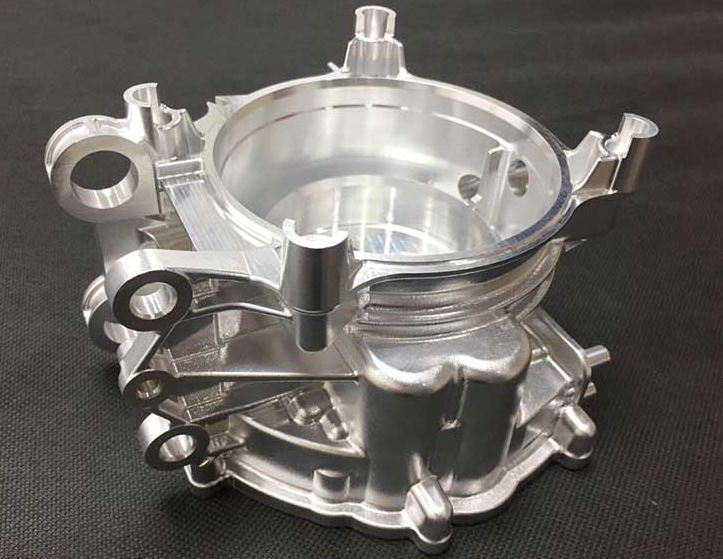More About Stahl Specialty Company
More About Stahl Specialty Company
Blog Article
The smart Trick of Stahl Specialty Company That Nobody is Talking About
Table of ContentsThe Ultimate Guide To Stahl Specialty CompanyThe Best Guide To Stahl Specialty CompanyExcitement About Stahl Specialty CompanyThe 20-Second Trick For Stahl Specialty CompanyNot known Details About Stahl Specialty Company
Chemical Comparison of Cast Aluminum Alloys Silicon promotes castability by minimizing the alloy's melting temperature level and boosting fluidness during casting. Additionally, silicon adds to the alloy's strength and put on resistance, making it useful in applications where sturdiness is critical, such as vehicle components and engine components.It likewise enhances the machinability of the alloy, making it much easier to process right into ended up products. By doing this, iron contributes to the general workability of aluminum alloys. Copper raises electric conductivity, making it helpful in electrical applications. It also enhances corrosion resistance and contributes to the alloy's general strength.
Manganese adds to the toughness of aluminum alloys and improves workability. It is generally made use of in functioned light weight aluminum items like sheets, extrusions, and accounts. The presence of manganese aids in the alloy's formability and resistance to breaking during manufacture procedures. Magnesium is a light-weight component that offers toughness and influence resistance to light weight aluminum alloys.
It permits the production of light-weight elements with excellent mechanical residential or commercial properties. Zinc enhances the castability of light weight aluminum alloys and helps manage the solidification procedure throughout spreading. It improves the alloy's stamina and hardness. It is typically located in applications where detailed forms and great details are required, such as attractive castings and specific automotive components.
Our Stahl Specialty Company Statements
Because aluminum-silicon alloys have great spreading buildings, high gas buildings, straightforward procedures, and excellent deterioration resistance, aluminum-silicon alloys are most commonly made use of in the die-casting sector at home and abroad. At the same time, aluminum-silicon alloys are also relatively very early and extensively acknowledged alloys developed and made use of in die-casting. After continual study and improvement, a lot of the existing global mainstream aluminum-silicon alloys have actually been wrapped up and are nothing greater than A356, A360, A380, ADC12, B390, and A413.
The key thermal conductivity, tensile strength, yield stamina, and elongation differ. Select appropriate raw products according to the efficiency of the target product created. Amongst the above alloys, A356 has the greatest thermal conductivity, and A380 and ADC12 have the cheapest. The tensile restriction is the opposite. A360 has the finest yield stamina and the highest possible prolongation rate.

The smart Trick of Stahl Specialty Company That Nobody is Discussing
In accuracy casting, 6063 is fit for applications where intricate geometries and high-quality surface coatings are vital. Instances include telecommunication enclosures, where the alloy's superior formability permits streamlined and visually pleasing layouts while keeping structural stability. In the Illumination Solutions market, precision-cast 6063 components create classy and reliable illumination components that require detailed shapes and good thermal performance.
(http://tupalo.com/en/users/7986108)
It causes a better surface finish and better rust resistance in A360. In addition, the A360 displays superior prolongation, making it optimal for complicated and thin-walled parts. In precision casting applications, A360 is fit for industries such as Consumer Electronic Devices, Telecommunication, and Power Tools. aluminum metal casting. Its boosted fluidity enables for complex, high-precision components like smart device housings and interaction device housings.

In precision casting, light weight aluminum 413 radiates in the Consumer Electronic Devices and Power Devices sectors. It's frequently made use of to craft intricate parts like mobile original site phone housings, video camera bodies, and power device cases. Its precision is amazing, with limited tolerances up to 0.01 mm, guaranteeing perfect product assembly. This alloy's superior corrosion resistance makes it an exceptional option for outside applications, making sure resilient, durable products in the discussed markets.
Getting My Stahl Specialty Company To Work
When you have decided that the aluminum die casting process is appropriate for your task, a critical following step is choosing on the most proper alloy. The aluminum alloy you choose will considerably influence both the spreading procedure and the properties of the last product. As a result of this, you have to make your decision thoroughly and take an informed strategy.
Determining the most ideal aluminum alloy for your application will certainly indicate weighing a broad range of attributes. These comparative alloy attributes comply with the North American Pass Away Spreading Organization's standards, and we've divided them into 2 groups. aluminum metal casting. The very first group addresses alloy attributes that affect the production process. The 2nd covers attributes affecting the residential properties of the end product.
The alloy you select for die spreading straight affects a number of facets of the spreading procedure, like just how easy the alloy is to deal with and if it is vulnerable to casting problems. Warm fracturing, additionally referred to as solidification splitting, is a regular die casting problem for aluminum alloys that can lead to inner or surface-level rips or cracks.
The Only Guide for Stahl Specialty Company
Specific aluminum alloys are much more vulnerable to warm fracturing than others, and your option needs to consider this. An additional common problem found in the die casting of light weight aluminum is pass away soldering, which is when the cast stays with the die walls and makes ejection challenging. It can damage both the actors and the die, so you need to seek alloys with high anti-soldering residential or commercial properties.
Corrosion resistance, which is currently a significant quality of aluminum, can vary substantially from alloy to alloy and is a crucial particular to consider depending on the ecological conditions your product will certainly be revealed to. Use resistance is another residential property typically looked for in aluminum products and can separate some alloys.
Report this page